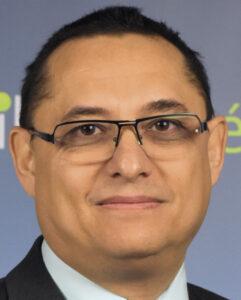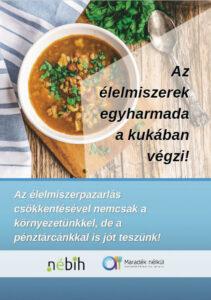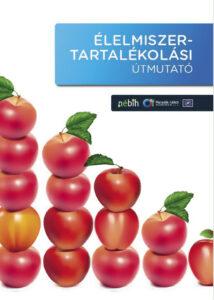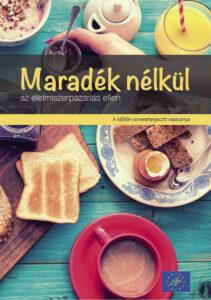Realising what has been planned
Imre Nemes has been the president of the National Food Chain Safety Office (Nébih) for almost a year, and our magazine asked him about experiences, results, priority projects and plans for the year.

This article is available for reading in Trade magazin 2024/6-7
![]() – What were your most important experiences in the past year?
– What were your most important experiences in the past year?

Dr. Imre Nemes
president
Nébih
– I would like farmers to look at Nébih not only as an authority, but also as a team of professionals who support and help them in their daily work. One important step in this direction can be to establish closer working relations with the product boards and professional organisations of various sectors. We have adapted the organisational structure of Nébih and our operational rules to be better suited for this.
![]() – What were the biggest results of the past twelve months?
– What were the biggest results of the past twelve months?
– Together with my colleagues in the management, our main priority was to make sure that the leadership change didn’t make our colleagues insecure. We are working to build a strong and cohesive community, a team where everyone feels supported by the leadership and do their job responsibly, to the best of their ability.
![]() – Is Nébih more accepted now than one year ago?
– Is Nébih more accepted now than one year ago?
– Fortunately, I can say that we haven’t received any negative feedback. We also see a stable and positive perception of Nébih from the consumer side. Food chain safety is viewed as one of the most important and best-performing areas supervised by the state. Consumers are also aware that Nébih is responsible for supervising the food chain and our confidence index is almost 70%.
![]() – How has the relationship between Nébih and trade associations developed?
– How has the relationship between Nébih and trade associations developed?
– At our first meeting with state secretary Márton Nobilis, we agreed that the role of trade organisations should be strengthened. We need to use the knowledge and practical know-how they have accumulated. Our relations with most trade organisations are even better than before.



No Leftovers programme is supported by educative brochures and promotional materials
![]() – How effective are the Quality-driven Public Sector Catering Programme and the Szupermenta Programme today?
– How effective are the Quality-driven Public Sector Catering Programme and the Szupermenta Programme today?
– Both programmes are well on track. In the case of the Quality-driven Public Sector Catering Programme, the most important feedback for us is that its usefulness is recognised by the managers of the establishments themselves. Thanks to the programme, the proportion of 1, 2 or 3 ratings has decreased by 12% for kitchens and by 18% for canteens. Our Szupermenta product testing programme will celebrate its 10th anniversary this autumn, with more than 100 product test results.
![]() – What about the High Quality Food (KMÉ) label?
– What about the High Quality Food (KMÉ) label?
– Our KMÉ trademark is a fine example of how we can use the knowledge and network of contacts we have at the Nébih in a whole new way. The momentum is also unbroken with KMÉ: last year alone 13 new product groups opened up for application.
![]() – Are your efforts to combat food waste successful?
– Are your efforts to combat food waste successful?
– The results of the household waste survey – conducted at the end of last year – aren’t yet available, but past experience indicates that Hungarian people are becoming more conscious it this respect. Since 2016 we have been monitoring the quantity of food waste generated in Hungarian households through our No Leftovers programme: the amount of food waste has dropped 27%.
![]() – What are your plans and priority projects this year?
– What are your plans and priority projects this year?
– I would definitely like to mention supporting the Hungarian EU presidency, in order to ensure its success. Due to this our experts will have a lot of extra work to do in the second half of the year. We also have priority projects that will give us plenty of work for several years, e.g. the improvement of our IT
systems. //
Related news
Forced paths: trends and decisions in 2026
🎧 Hallgasd a cikket: Lejátszás Szünet Folytatás Leállítás Nyelv: Auto…
Read more >The presence of bird flu has also been confirmed in Bács-Kiskun County
🎧 Hallgasd a cikket: Lejátszás Szünet Folytatás Leállítás Nyelv: Auto…
Read more >Related news
MOHU: 5,200 return points are in operation, but 47 larger settlements still do not have RE points – public “enema” machines may be introduced
🎧 Hallgasd a cikket: Lejátszás Szünet Folytatás Leállítás Nyelv: Auto…
Read more >GDP growth in OECD member countries slowed to 0.3 percent in the last quarter of last year
🎧 Hallgasd a cikket: Lejátszás Szünet Folytatás Leállítás Nyelv: Auto…
Read more >







